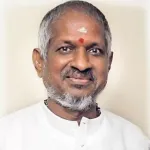India-European Free Trade Association (EFTA) signed a Trade and Economic Partnership Agreement (TEPA) on Sunday. The European Free Trade Association is a trade organisation and free trade area consisting of four European states- Iceland, Liechtenstein, Norway and Switzerland.
Speaking to ANI, Vestre said, "This is the first time India has included a chapter on human rights in a free trade agreement and it is the first trade agreement globally where an investment chapter has been included."
As part of the agreement, EFTA has committed to promote investments to increase the stock of foreign direct investments by USD 100 billion in India in the next 15 years, and to facilitate the generation of 1 million direct employment in India, through such investments.
Notably, India has been working on a Trade and Economic Partnership Agreement (TEPA) with EFTA countries comprising Switzerland, Iceland, Norway and Liechtenstein for several years.
On being asked what were contentious issues that consumed the maximum time, the minister said, "We have three issues we spent some time on. Of course, it was about the tariff lines, which products and services should be included in the duty-free commitments and...we found good solutions on that, quite fast."
"Second was about the chapter on sustainable development, which also refers to human rights and obligations there, which refers to international convention, that's new to India to do so. And I admire India for doing this. Of course, the third big issue was the investment chapter, simply because it doesn't exist any kind of chapters like this in any free trade agreement globally, as far as I know," he said.
The Norwegian minister further termed the agreement fair, balanced, and which gives equal opportunities.
The agreement comprises 14 chapters with the main focus on market access related to goods, rules of origin, trade facilitation, trade remedies, sanitary and phytosanitary measures, technical barriers to trade, investment promotion, market access on services, intellectual property rights, trade and sustainable development and other legal and horizontal provisions.
"I'm very proud that we have reached a good agreement but also that we have created a new kind of framework together. And that seems to require a lot of creativity, hard work from our experts, and passion. But also a hands-on approach from all of us," the minister mentioned.
The two sides have been discussing the free trade agreement for almost 20 years but the minister believes that it was the last 12 months when things started to happen.
Vestre commended the Indian side for agreeing to include a chapter on human rights.
While elaborating on what is there on human rights in the agreement, the Norwegian minister said that the agreement talks about the different kinds of international conventions, including the ones important for women's rights, gender equality, labour rights and human rights.
"We find that (the clause on human rights) important because we do believe that trade is also a good way to promote sustainable development. There are a lot of really important and bold, ongoing reforms here in India right now. And we think that these are issues that we can also sit down to discuss together, learn from each other experiences, share ideas and also use trade as a good tool. To make the world a more sustainable and fair world," he said.
EFTA is offering 92.2 per cent of its tariff lines which covers 99.6 per cent of India's exports. The EFTA's market access offers cover 100 per cent of non-agri products and tariff concession on Processed Agricultural Products (PAP).
India is offering 82.7 per cent of its tariff lines which covers 95.3 per cent of EFTA exports of which more than 80 per cent import is Gold. The effective duty of Gold remains untouched.
Sensitivity related to PLI in sectors such as pharma, medical devices processed food etc. have been taken while extending offers. Sectors such as dairy, soya, coal and sensitive agricultural products are kept on the exclusion list.
On being asked what sectors could reap the benefit of this FTA, the minister said that this would be beneficial for all industries.
"Indian companies will get access to our markets and reaching exporters will have access to the Indian market. We have made concessions on a lot of different important industries such as textiles such as agriculture, such as different kinds of services, construction companies, infrastructure, technology, and the maritime industry, and we will also work together on renewable energy and how to speed up the green transition together," he said.








